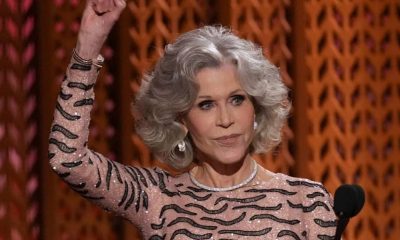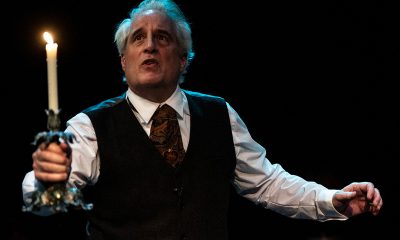a&e features
Lily Tomlin on why she’s happy she lost the Emmy this year — and a whole lot more
Comedy legend on Fonda, Travolta, Madeline Kahn, Gilda Radner and her nearly 50-year career
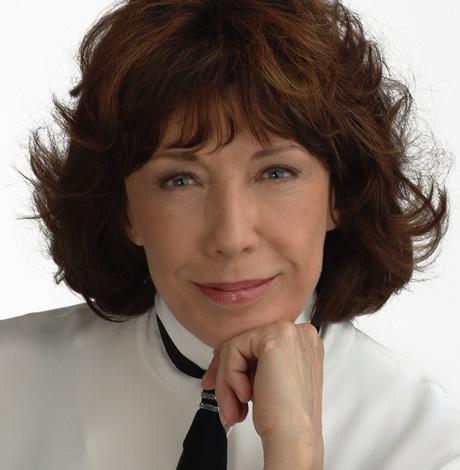
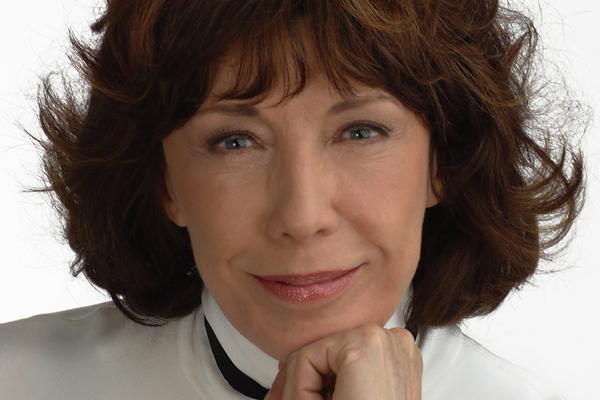
Lily Tomlin says her comedy was too ‘off the wall’ for a ‘Carol Burnett Show’-type series in the ‘70s. (Photo courtesy Tomlin)
Lily Tomlin
Wednesday, Oct. 17
8 p.m.
Kennedy Center Concert Hall
2700 F St., N.W.
$39-129
It’s Tuesday, Sept. 18, the morning after the Emmy Awards. Lily Tomlin was nominated for her role as Frankie on “Grace and Frankie,” her hit Netflix comedy in which she co-stars with her old pal Jane Fonda. By phone from her home in Los Angeles, Tomlin is thoroughly unfazed at having lost to Rachel Brosnahan for Amazon’s “The Marvelous Mrs. Maisel.”
Tomlin, 79, has seven other Emmys and is only an Oscar short of EGOT status. She spent a delightful near-hour with the Blade by phone — ostensibly to talk about her Oct. 17 show at the Kennedy Center though she was far more animated on a host of other topics. Her comments have been slightly edited for length.
WASHINGTON BLADE: How were the Emmys?
LILY TOMLIN: Well I was a little bit late. I missed the opening number and then my category was announced and I went backstage to the green room to congratulate Brosnahan. … She was very sweet and everything like that. Then out in the hallway I ran into Betty White so we took a photo. She’s totally charming. Her birthday is Capricorn so she’s very much like my mom and she could be my mom, that’s what’s staggering.
BLADE: Was there anybody else you were particularly rooting for?
TOMLIN: Not so much. I don’t want to be blase about the Emmys but there’s so much product, I mean there’s no way they can embrace all the product. There’s something like 450 shows on the air probably that run every week at least part of the year. That’s just staggering.
BLADE: Do you watch many of them?
TOMLIN: I only watch an infinitesimal fraction of them. I watch all the obvious ones, you know. “Ozark,” that’s sort of a creeper. When “Homeland’s” on I watch “Homeland.” “Billions.” I used to watch “Orange is the New Black” but I sort of got — well, you lose track of it. A new show comes along and you start watching that for a season or two then you gotta double back and see way into some other show you loved and it’s just too much. There’s no way any one person could watch all the shows for a whole year, never mind having to earn a living or anything.
BLADE: I don’t even know how the critics do it.
TOMLIN: I don’t even know if they do do it. I think they just run through one or two and they take a little consensus. I don’t think they can do it. Maybe somebody has laid out the statistics so they know that golly, it is possible but I’d be more hard pressed I guess. (laughs)
BLADE: Do you dream of winning the Oscar to complete the set?
TOMLIN: I think I probably have missed that chance.
BLADE: Well you never know.
TOMLIN: No, you never do know but as you get older, it’s very hard to come by older parts. And of course I have that idea alive but by that time it’s not gonna matter. It’s getting ridiculous. There was a time when everybody was focused on somebody coming along and, “Oh, she’s got an EGOT.” I’ve satisfied myself because I have two Peabodys. I said, “Well, if I did have an Oscar, I’d have a PEGOT. I wonder how many more people have a PEGOT.” (laughs)
BLADE: Probably none.
TOMLIN: Maybe, I don’t know. But it’s like all things in life. It’s not that it’s not exciting or fun or you value it or you’d like to win but frankly, I did not want to win last night. I didn’t want to win when Jane Fonda wasn’t nominated. So when she was nominated we’d go to the Emmys together and we’d feel pretty satisfied we weren’t gonna be called to the front because we knew we’d split the vote. You never really know. You don’t know what the count is, but I didn’t relish winning and plus I feel a little bit somewhat estranged from the multitude of shows that are on. I used to have friends on every show or I’d really be able to grasp the whole industry in an armload but times change. The Emmys will probably eventually evolve into something else. I’ve been a governor at the Academy and it’s a very hard thing to do. You have to have someone who has the brains to figure out what’s coming down the pike and how they should handle it. I think time will just take care of that.
BLADE: Are you still shooting season five?
TOMLIN: No, we finished that and we’re gonna start season six in January so we’re chugging along. We really do love doing the show.
BLADE: How long does it take to shoot a season?
TOMLIN: Four-five months but we have a little time. We put some hiatuses in there and we really like that. So we’ll work like three-four weeks and have a week off. And as time has gone on, the other characters, their lives have gotten more developed and so it used to be very heavy on the shoulders of Jane and me to handle the story because they had to establish our characters strongly first and now everybody else has a life going on and there’s a lot of interaction now so we’re able to have this time off. We just have fun, that’s all. I adore Sam (Waterston) and Martin (Sheen) and my kids. I even love Jane’s kids.
BLADE: Critics have said the show found its footing more in the second and third seasons. Would you agree?
TOMLIN: Yeah, I guess we found it as we went along because whoever was gonna develop that story, they were finding it too. I don’t think anybody had that story thought out completely. I don’t think any show ever does. It evolves as you go along. When I did “Damages” on FX, it was exciting because we were playing such bad people. We were always getting into some dreadful mischief. It was based on the Madoff family and we never knew how bad we were and they never told us. So we would sort of play it by ear. … We’d stand around and we were always having to play both sides of the road because we were hoping we were gonna be really bad. We’d stand around and say, “Do you think Joe would kill his mother, do you think she would kill her son …” (laughs) We were just really deep into it. So with “Grace and Frankie,” especially the beginning season, we had to adjust how we all behaved. … Like that scene on the beach when Jane and I are doing peyote and we’d sort of hit bottom with our husbands taking off and all that. When we played that one scene where she’s saying, “You know, why aren’t you mad and upset,” and all that stuff, and I’d say, “No, he didn’t know what he was doing, he couldn’t do it any other way and that’s all he could do,” and then she’d say, “How can you just take it” or something like that and then I broke down and said, “I’m heartbroken.” I didn’t really expect that.
BLADE: What’s it like working with Jane now versus 30 years ago? Has she mellowed or not mellowed or anything noticeably like that?
TOMLIN: I feel like she’s the same person. She’s always growing and always learning and changing and developing herself and trying to make everything better so I don’t even want to say she hasn’t changed because I’m sure she has changed for the better in many ways but I can’t just put my finger on it because she’s a really good person. Even when she’s being really direct, it’s because she wants to make things better for everbody. Like she’ll say to someone on the set, “You need a haircut.” Somebody else would just be devastated if somebody of Jane’s position on the show should go in and tell somebody that but sure enough, the person would go in and somebody would cut their hair and they’d look really great and it was just like she has an eye for it and she can’t help being that direct. It’s like, “God, we gotta fix this right now,” but never in a hurtful way. She’s really a wonderful friend to me.
BLADE: Are you in “Jane Fonda in Five Acts,” her new documentary?
TOMLIN: I’m in it briefly in the beginning and then a little bit in the middle someplace.
BLADE: Have you seen it yet?
TOMLIN: Yeah, we had a big screening and then Jane and I went up to San Francisco the next morning to lobby for one fair wage and we didn’t get home til midnight that night so we were beat. We had the movie until 10:30, 11 or so then we had to be up and out of the house by 7 so sometimes we’re just doing so much, we’re on the run all the time.
BLADE: How did you like it?
TOMLIN: I liked it. I thought it was rather epic. She has lived such a full life.
BLADE: How has Netflix been to work for?
TOMLIN: Netflix is great. It’s good. It’s good except we don’t know how successful we are. Our agents don’t even know. They just know it’s popular.
BLADE: So there’s no ratings or any way to gauge it?
TOMLIN: No, you never really know. It’s not like being on network and knowing you’re number whatever in a roster and you know how much the network wants to keep you or not keep you. It can work two ways. It can make you feel very familial with the boss man or it can make you rebel.
BLADE: Well you never know what kind of footing you’re on.
TOMLIN: Yeah, exactly. But they’re basically fun and the people at Netflix and Skydance, which is the producing partner of Okay Goodnight!, which is Marta Kauffman’s company, they all have a hand in it.
BLADE: How long would you like to see “Grace and Frankie” run?
TOMLIN: I think about eight years. Jane says she wants it to run until we’re both really old and everybody watches us age. I think that would be a good touchstone for people.
BLADE: Do you think sitcoms tend to run out of gas after about eight or 10 years?
TOMLIN: You mean the content?
BLADE: Yeah. It gets repetitious.
TOMLIN: Well I don’t know, we haven’t done it. Did “Seinfeld” run out? They were on nine years or something like that I think. “Murphy (Brown)” was 10 years.
BLADE: Are you gonna be on the reboot of that? (Tomlin played Kay on seasons nine-10)
TOMLIN: No, there’s no plans for me to be.
BLADE: What do you think of all these reboots? Is it a good thing or just a sign that they’re desperate for something with built-in name recognition?
TOMLIN: Well as with anything, it depends what’s done with it, who’s hand is in it. Is it innovative? Is it fresh? Can they find a freshness in those relationships? Now “Murphy” has a good chance because they’re gonna be very political and I think Candice’s character is very timely in that she has always been an independent woman. She’s assertive, she’s in a very timely, professional field and it’s been a long time since they’ve been on. Twenty years or more, maybe more.
BLADE: I read that “Grandma” was shot in just 19 days. Was it nerve wracking shooting that quickly?
TOMLIN: No, no it was great. The actors were so good and I adored (director) Paul Weitz. I’d done “Admission” with him and then he came back to me with “Grandma” and no, it wasn’t nerve wracking at all. It was rather fun. I thought that would be my last crack at an Oscar. I got a lot of great notices in the New York Times, the Los Angeles Times and all those papers but it just never took off. It was never a big enough hit to attract attention, maybe because of the subject, I don’t know. But I liked that little film very much.
BLADE: That was a decent hit relative to its budget. It must be quite gratifying to still be having hits with that and “Grace and Frankie.”
TOMLIN: Yeah, no of course it is. (laughs) Anything is fun that keeps you in the game.
BLADE: How did you get so chummy with (British cabaret singer) Mabel Mercer (1900-1984)?
TOMLIN: Oh Mabel Mercer, now you’re taking me back so far. Well what happened is I used to work at Upstairs at the Downstairs. I was in a revue there initially with Dixie Carter and Madeline Kahn and Irv Haber who owned the club, Mabel Mercer used to do Mabel’s Room downstairs which was this small little blot kind of room and it was just ideal for her and it used to be her room. Joan Rivers came along and made a huge splash and she was there on weekends and Mabel would come in like Mondays, Tuesdays and Wednesdays so Irv asked me to open for her. I had gone to see her in the old days when she was playing like, oh, what was it, the Bonsoirs or whatever that club was on 8th Street. My friend Louis and I would walk down there and we’d have like a quarter for the coat check and that would be it. The bar would be stacked so thick, you could stand there for a whole set and never even buy a drink. So when Irv gave me the chance to open for her, I just jumped at it. I think I was a little radical for Mabel’s crowd at the time. There’d be a lot of stars there at the late shows and I remember (‘30s actress) Patsy Kelly was one of the women and they were like of another generation. They were kind of very mouthy and loquacious and they’d speak out and catch you in all kinds of stuff. I used to do a funeral sketch where I’d use a ventriloquist dummy as the corpse to cheer up the crowd and Patsy jumps up and says, “OK, that’s enough of that, we don’t need to see that.” They didn’t like that subject and of course maybe as you get closer to death you don’t. So I lived in Yonkers and I’d go pick Mabel up in Harlem. She stayed there with relatives because she lived in Rockland County and I would go pick her up in Harlem and we’d drive to the club and then I’d take her back to Yonkers and having those times with Mabel Mercer was so fabulous. She was so wonderful, so human, so elegant and so down to earth. One time she said to me, “You know, Lily — I would just love to get a commercial.” And this was a time when we didn’t really do commercials, not those of us who had any consciousness. We thought it was terrible that these big companies would co-opt artists into their commercial activities but she had a girlfriend who’d gotten a Tide commercial and bought herself a fur coat and she thought that was great. I loved her so much. I used to go to Cleo’s and different clubs around New York and she would make me cry so much. Laugh and then cry at the way she could interpret a song. She had no voice left really. Her voice was very limited but she was so brilliant and she would be so moving and entertaining. I cried into napkins then glued them into my scrapbook. I need to go over to the office and see if I still have all that stuff.
BLADE: Were you close to Madeline and Dixie?
TOMLIN: I was closer to Madeline. … They’re both dead now and it’s just terrible. Madeline especially died really early. Anyway as Ruth Draper would say, “Well, that’s that.”
BLADE: You grew up in a mostly black neighborhood in Detroit. Did you know or know of Aretha and Smokey and all those folks?
TOMLIN: I was but I didn’t know them personally. I knew of them. I knew of Motown and I knew of everything but I didn’t really know them. I later met Diana Ross and she introduced me to Michael Jackson. He was really quite a kid but I didn’t really hang with them. They wren’t within like a two- or three-block radius of the apartment house I lived in.
BLADE: With all those TV specials you did in the ‘70s, was there ever talk of you having your own variety show?
TOMLIN: Well all those specials were supposed to be pilots for variety shows. I did six of them — four for CBS and two for ABC and I had huge ratings, especially for the first couple. The second special I did for CBS, Freddie Silverman wasn’t going to air it. He screamed at my manager Irene, “He said this $360,000 — they only cost $360,000 in those days — jerk-off.” Then he had breakfast with Alan Alda, and Alan Alda was on it, and he said, “Oh, I just had the greatest time doing Lily Tomlin’s special,” and Fred Silverman went back and looked at it again and he relented and they put it on at 10 o’clock that night and we got two Emmys, best special and best writing.
BLADE: Why do you think they never got picked up?
TOMLIN: It was unusual for its time and that was the last gasp of variety shows until something like “Saturday Night Live” comes along and “Fridays.” “Fridays” was a fairly successful show too. … You can’t predict a lot of this stuff. My shows were just too off the wall basically at that time but they weren’t off the wall, they were right on the wall. They were really good, most of them. When they didn’t really interfere with us, we’d go haywire.
BLADE: Jane says the “9 to 5” sequel is a go. What’s the status of that?
TOMLIN: It’s being written. Then we’ll have our input but we can only wait for the first draft and see how that goes. But they want it quite badly so I think they’ll keep working on it til it’s greenlighted.
BLADE: It’s so many years later. Was there serious talk of doing something sooner?
TOMLIN: There was constant talk of it. Before (director) Colin (Higgins) died, he had written a draft that would have starred Jane, Dolly (Parton) and me. Now we’ll be paired with a younger generation although we’ll figure prominently in the story but there’ll be other aspects of the story that would not have been present if we’d done it immediately after the original. At one point, Jada Pinkett Smith optioned it and they were gonna do it with an all-black cast. That never came to fruition and Jane Fonda had given up the rights in some fashion so she didn’t even have control of it at that time. Now it’s come back around to us again.
BLADE: Does performing at the Kennedy Center have any special resonance for you since you have the Honors and the Twain Prize or is it just like performing anywhere else?
TOMLIN: Well the last time I was there, I did “The Search for Signs of Intelligent Life in the Universe,” so I’m not doing that show at the moment but I’m doing something character driven. I use some video, mostly to make fun of myself or to reflect on a character’s development from many years before. I like to think of my act as a roller coaster ride and you never know when that drop is gonna come. I just like to keep things mixed up.
BLADE: Does Ernestine have anything to say about the current administration?
TOMLIN: She probably has plenty to say but she won’t be saying it this evening. I don’t think she will. Unless she and Trump get into a Tweeting war (laughs).
BLADE: Did you and John Travolta hit it off making “Moment by Moment” (1978)?
TOMLIN: Yeah. He could do my characters, especially Trudy the bag lady. He was a darling guy. I loved him a lot. He was really cute, really sweet. Only about 23 or something.
BLADE: Have you seen him recently?
TOMLIN: Yeah, I’ve run into him. I’ve seen him at the theater or at award shows, especially when he was doing O.J. Oh, who did he play? He was very good. He’s a good actor. He sent me a congratulations on my Emmy nomination.
BLADE: How is (your wife) Jane (Wagner) these days? What’s she up to?
TOMLIN: She’s wonderful, terrific, fabulous.
BLADE: Does she enjoy being more behind the scenes?
TOMLIN: I think she does prefer that. She’s much more introspective than I am. But, you know, if she does something she likes to be acknowledged for it. We’ve tried hard to do that over the years. I used to have to write to Ted Koppel. He used to say, “As Lily Tomlin says …,” during the tenure of “Search,” there were so many great lines in “Search,” and it was true, I did say it but Jane wrote it. I’d say, “Ted, you’ve got to acknowledge Jane for this line.”
BLADE: Are you working on anything together now?
TOMLIN: We’re mostly working on producing stuff. We’re working on a show on the pulp novels of the ‘50s. I don’t know if you know them or not, but Ann Bannon’s books about Beebo Brinker who is a lesbian in the Village in the ‘50s and early ‘60s.
BLADE: Where would one have purchased those books then?
TOMLIN: You’d get ‘em off a low grade news stand or in a little kiosk that wasn’t in your home town. It was always kind of furtive. God forbid somebody would see one in a drawer in your house or something.
BLADE: Were they as kitschy at the time as they seem now?
TOMLIN: No, they weren’t.
BLADE: They seem like total kitsch now.
TOMLIN: Yeah, they’re pretty kitschy but they were rather heart felt. We’re trying to make a series of it.
BLADE: Will it be cheeky or straight?
TOMLIN: Well I think it may be in the eye of the beholder.
BLADE: What do you like to do when you have a day off at home? Do you like to piddle around the house and cook?
TOMLIN: Yeah, I like to be at home. I have Cancer rising so my home is important to me. I have an Aries moon, so I’m volatile. Then I have a Virgo sun, if all this stuff is true and applicable.
BLADE: Did you see the new Gilda (Radner) documentary?
TOMLIN: No. Someone sent me a notice to go to a screening but I had to work that night but I’m really anxious to see it. Gilda was so dear. She was a little bit younger and whereas I was good friends with Madeline and Dixie, I never really got to be close to Gilda except we were both from Detroit and I was on “Saturday Night Live” a few times.
BLADE: It’s nice to see her getting some dues a little bit with this.
TOMLIN: Oh yeah. None of the girls on “SNL” really got any kind of real celebration. The guys went on to make movie after movie and it didn’t even matter how they did. They always had one in the can, one in the planning and one on the boards so it one was failing, they always had two more chances. Gilda never really had any great vehicle written for her or anything like that.
BLADE: Thank you.
TOMLIN: Wow, you were pretty Johnny on the questions spot. I hope I gave you something to work with.
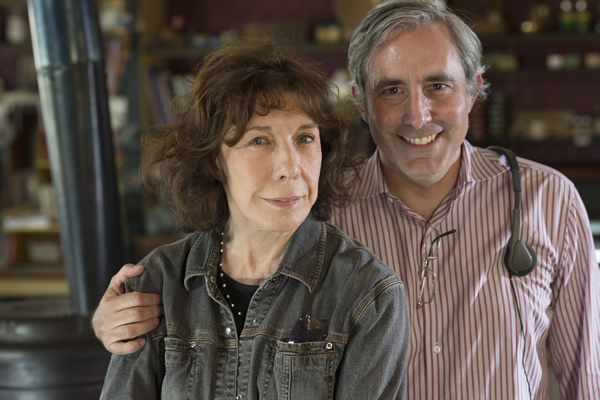
Lily Tomlin with Paul Weitz on the set of her hit 2015 movie ‘Grandma.’ (Photo by Glen Wilson; courtesy Sony Pictures Classics)
a&e features
Visit Cambridge, a ‘beautiful secret’ on Maryland’s Eastern Shore
New organization promotes town’s welcoming vibe, LGBTQ inclusion

CAMBRIDGE, Md. — Driving through this scenic, historic town on Maryland’s Eastern Shore, you’ll be charmed by streets lined with unique shops, restaurants, and beautifully restored Victorian homes. You’ll also be struck by the number of LGBTQ Pride flags flying throughout the town.
The flags are a reassuring signal that everyone is welcome here, despite the town’s location in ruby red Dorchester County, which voted for Donald Trump over Kamala Harris by a lopsided margin. But don’t let that deter you from visiting. A new organization, Proudly Cambridge, is holding its debut Pride event this weekend, touting the town’s welcoming, inclusive culture.
“We stumbled on a beautiful secret and we wanted to help get the word out,” said James Lumalcuri of the effort to create Proudly Cambridge.
The organization celebrates diversity, enhances public spaces, and seeks to uplift all that Cambridge has to share, according to its mission statement, under the tagline “You Belong Here.”
The group has so far held informal movie nights and a picnic and garden party; the launch party is June 28 at the Cambridge Yacht Club, which will feature a Pride celebration and tea dance. The event’s 75 tickets sold out quickly and proceeds benefit DoCo Pride.
“Tickets went faster than we imagined and we’re bummed we can’t welcome everyone who wanted to come,” Lumalcuri said, adding that organizers plan to make “Cheers on the Choptank” an annual event with added capacity next year.
One of the group’s first projects was to distribute free Pride flags to anyone who requested one and the result is a visually striking display of a large number of flags flying all over town. Up next: Proudly Cambridge plans to roll out a program offering affirming businesses rainbow crab stickers to show their inclusiveness and LGBTQ support. The group also wants to engage with potential visitors and homebuyers.
“We want to spread the word outside of Cambridge — in D.C. and Baltimore — who don’t know about Cambridge,” Lumalcuri said. “We want them to come and know we are a safe haven. You can exist here and feel comfortable and supported by neighbors in a way that we didn’t anticipate when we moved here.”

Lumalcuri, 53, a federal government employee, and his husband, Lou Cardenas, 62, a Realtor, purchased a Victorian house in Cambridge in 2021 and embarked on an extensive renovation. The couple also owns a home in Adams Morgan in D.C.
“We saw the opportunity here and wanted to share it with others,” Cardenas said. “There’s lots of housing inventory in the $300-400,000 range … we’re not here to gentrify people out of town because a lot of these homes are just empty and need to be fixed up and we’re happy to be a part of that.”
Lumalcuri was talking with friends one Sunday last year at the gazebo (affectionately known as the “gayzebo” by locals) at the Yacht Club and the idea for Proudly Cambridge was born. The founding board members are Lumalcuri, Corey van Vlymen, Brian Orjuela, Lauren Mross, and Caleb Holland. The group is currently working toward forming a 501(c)3.
“We need visibility and support for those who need it,” Mross said. “We started making lists of what we wanted to do and the five of us ran with it. We started meeting weekly and solidified what we wanted to do.”
Mross, 50, a brand strategist and web designer, moved to Cambridge from Atlanta with her wife three years ago. They knew they wanted to be near the water and farther north and began researching their options when they discovered Cambridge.
“I had not heard of Cambridge but the location seemed perfect,” she said. “I pointed on a map and said this is where we’re going to move.”
The couple packed up, bought a camper trailer and parked it in different campsites but kept coming back to Cambridge.
“I didn’t know how right it was until we moved here,” she said. “It’s the most welcoming place … there’s an energy vortex here – how did so many cool, progressive people end up in one place?”
Corey van Vlymen and his husband live in D.C. and were looking for a second home. They considered Lost River, W.Va., but decided they preferred to be on the water.
“We looked at a map on both sides of the bay and came to Cambridge on a Saturday and bought a house that day,” said van Vlymen, 39, a senior scientist at Booz Allen Hamilton. They’ve owned in Cambridge for two years.
They were drawn to Cambridge due to its location on the water, the affordable housing inventory, and its proximity to D.C.; it’s about an hour and 20 minutes away.
Now, through the work of Proudly Cambridge, they hope to highlight the town’s many attributes to residents and visitors alike.
“Something we all agree on is there’s a perception problem for Cambridge and a lack of awareness,” van Vlymen said. “If you tell someone you’re going to Cambridge, chances are they think, ‘England or Massachusetts?’”
He cited the affordability and the opportunity to save older, historic homes as a big draw for buyers.
“It’s all about celebrating all the things that make Cambridge great,” Mross added. “Our monthly social events are joyful and celebratory.” A recent game night drew about 70 people.
She noted that the goal is not to gentrify the town and push longtime residents out, but to uplift all the people who are already there while welcoming new visitors and future residents.
They also noted that Proudly Cambridge does not seek to supplant existing Pride-focused organizations. Dorchester County Pride organizes countywide Pride events and Delmarva Pride was held in nearby Easton two weeks ago.
“We celebrate all diversity but are gay powered and gay led,” Mross noted.
To learn more about Proudly Cambridge, visit the group on Facebook and Instagram.
What to see and do
Cambridge, located 13 miles up the Choptank River from the Chesapeake Bay, has a population of roughly 15,000. It was settled in 1684 and named for the English university town in 1686. It is home to the Harriet Tubman Museum, mural, and monument. Its proximity to the Blackwater National Wildlife Refuge makes it a popular stop for birders, drawn to more than 27,000 acres of marshland dubbed “the Everglades of the north.”
The refuge is walkable, bikeable, and driveable, making it an accessible attraction for all. There are kayaking and biking tours through Blackwater Adventures (blackwateradventuresmd.com).
Back in town, take a stroll along the water and through historic downtown and admire the architecture. Take in the striking Harriet Tubman mural (424 Race St.). Shop in the many local boutiques, and don’t miss the gay-owned Shorelife Home and Gifts (421 Race St.), filled with stylish coastal décor items.
Stop for breakfast or lunch at Black Water Bakery (429 Race St.), which offers a full compliment of coffee drinks along with a build-your-own mimosa bar and a full menu of creative cocktails.
The Cambridge Yacht Club (1 Mill St.) is always bustling but you need to be a member to get in. Snapper’s on the water is temporarily closed for renovations. RaR Brewing (rarbrewing.com) is popular for craft beers served in an 80-year-old former pool hall and bowling alley. The menu offers burgers, wings, and other bar fare.
For dinner or wine, don’t miss the fantastic Vintage 414 (414 Race St.), which offers lunch, dinner, wine tasting events, specialty foods, and a large selection of wines. The homemade cheddar crackers, inventive flatbreads, and creative desserts (citrus olive oil cake, carrot cake trifle) were a hit on a recent visit.
Also nearby is Ava’s (305 High St.), a regional chain offering outstanding Italian dishes, pizzas, and more.
For something off the beaten path, visit Emily’s Produce (22143 Church Creek Rd.) for its nursery, produce, and prepared meals.
“Ten minutes into the sticks there’s a place called Emily’s Produce, where you can pay $5 and walk through a field and pick sunflowers, blueberries, you can feed the goats … and they have great food,” van Vlymen said.
As for accommodations, there’s the Hyatt Regency Chesapeake Bay (100 Heron Blvd. at Route 50), a resort complex with golf course, spa, and marina. Otherwise, check out Airbnb and VRBO for short-term rentals closer to downtown.
Its proximity to D.C. and Baltimore makes Cambridge an ideal weekend getaway. The large LGBTQ population is welcoming and they are happy to talk up their town and show you around.
“There’s a closeness among the neighbors that I wasn’t feeling in D.C.,” Lumalcuri said. “We look after each other.”
a&e features
James Baldwin bio shows how much of his life is revealed in his work
‘A Love Story’ is first major book on acclaimed author’s life in 30 years

‘Baldwin: A Love Story’
By Nicholas Boggs
c.2025, FSG
$35/704 pages
“Baldwin: A Love Story” is a sympathetic biography, the first major one in 30 years, of acclaimed Black gay writer James Baldwin. Drawing on Baldwin’s fiction, essays, and letters, Nicolas Boggs, a white writer who rediscovered and co-edited a new edition of a long-lost Baldwin book, explores Baldwin’s life and work through focusing on his lovers, mentors, and inspirations.
The book begins with a quick look at Baldwin’s childhood in Harlem, and his difficult relationship with his religious, angry stepfather. Baldwin’s experience with Orilla Miller, a white teacher who encouraged the boy’s writing and took him to plays and movies, even against his father’s wishes, helped shape his life and tempered his feelings toward white people. When Baldwin later joined a church and became a child preacher, though, he felt conflicted between academic success and religious demands, even denouncing Miller at one point. In a fascinating late essay, Baldwin also described his teenage sexual relationship with a mobster, who showed him off in public.
Baldwin’s romantic life was complicated, as he preferred men who were not outwardly gay. Indeed, many would marry women and have children while also involved with Baldwin. Still, they would often remain friends and enabled Baldwin’s work. Lucien Happersberger, who met Baldwin while both were living in Paris, sent him to a Swiss village, where he wrote his first novel, “Go Tell It on the Mountain,” as well as an essay, “Stranger in the Village,” about the oddness of being the first Black person many villagers had ever seen. Baldwin met Turkish actor Engin Cezzar in New York at the Actors’ Studio; Baldwin later spent time in Istanbul with Cezzar and his wife, finishing “Another Country” and directing a controversial play about Turkish prisoners that depicted sexuality and gender.
Baldwin collaborated with French artist Yoran Cazac on a children’s book, which later vanished. Boggs writes of his excitement about coming across this book while a student at Yale and how he later interviewed Cazac and his wife while also republishing the book. Baldwin also had many tumultuous sexual relationships with young men whom he tried to mentor and shape, most of which led to drama and despair.
The book carefully examines Baldwin’s development as a writer. “Go Tell It on the Mountain” draws heavily on his early life, giving subtle signs of the main character John’s sexuality, while “Giovanni’s Room” bravely and openly shows a homosexual relationship, highly controversial at the time. “If Beale Street Could Talk” features a woman as its main character and narrator, the first time Baldwin wrote fully through a woman’s perspective. His essays feel deeply personal, even if they do not reveal everything; Lucian is the unnamed visiting friend in one who the police briefly detained along with Baldwin. He found New York too distracting to write, spending his time there with friends and family or on business. He was close friends with modernist painter Beauford Delaney, also gay, who helped Baldwin see that a Black man could thrive as an artist. Delaney would later move to France, staying near Baldwin’s home.
An epilogue has Boggs writing about encountering Baldwin’s work as one of the few white students in a majority-Black school. It helpfully reminds us that Baldwin connects to all who feel different, no matter their race, sexuality, gender, or class. A well-written, easy-flowing biography, with many excerpts from Baldwin’s writing, it shows how much of his life is revealed in his work. Let’s hope it encourages reading the work, either again or for the first time.
a&e features
Looking back at 50 years of Pride in D.C
Washington Blade’s unique archives chronicle highs, lows of our movement
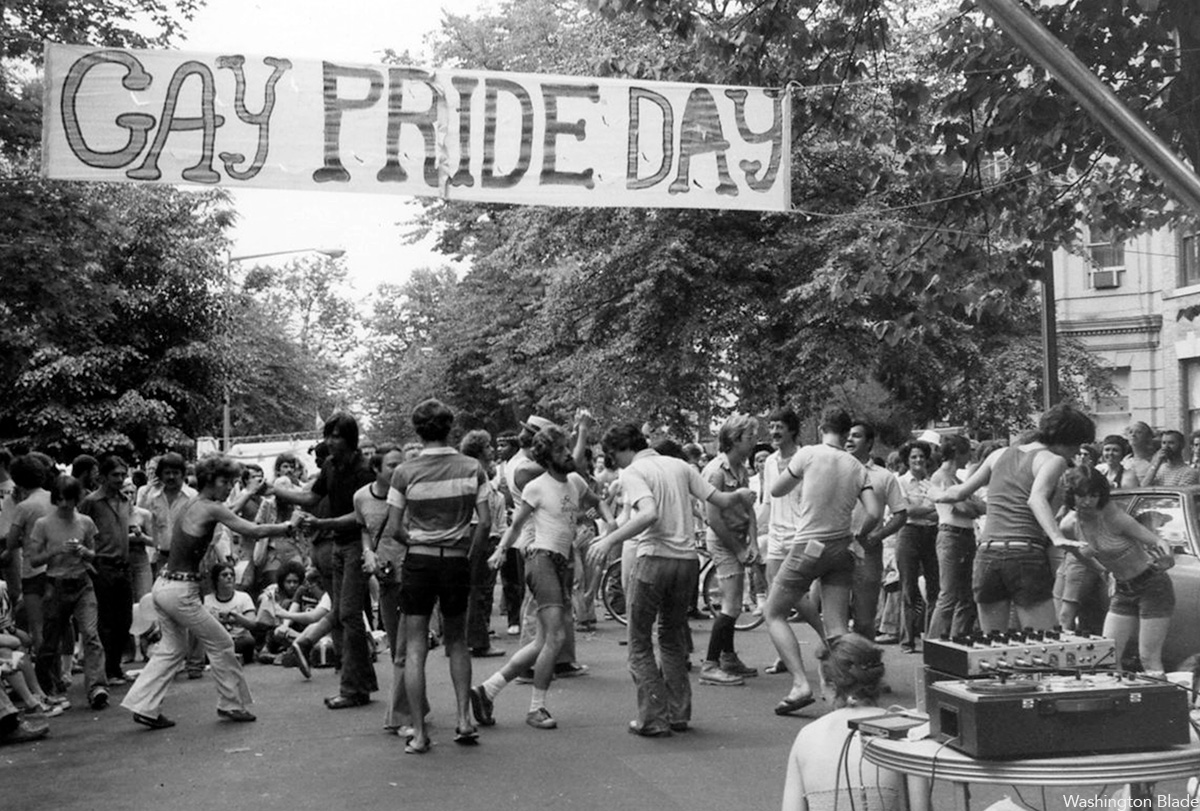
To celebrate the 50th anniversary of LGBTQ Pride in Washington, D.C., the Washington Blade team combed our archives and put together a glossy magazine showcasing five decades of celebrations in the city. Below is a sampling of images from the magazine but be sure to find a print copy starting this week.
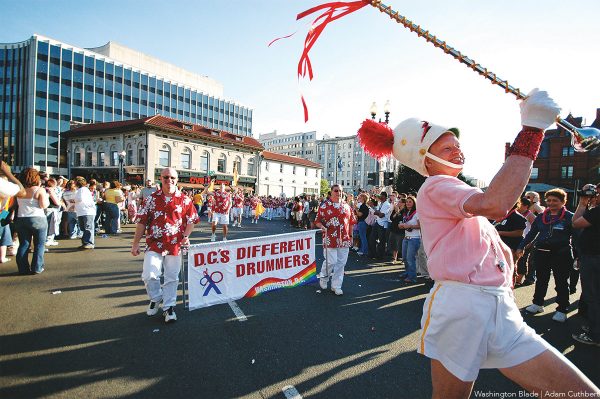
The magazine is being distributed now and is complimentary. You can find copies at LGBTQ bars and restaurants across the city. Or visit the Blade booth at the Pride festival on June 7 and 8 where we will distribute copies.
Thank you to our advertisers and sponsors, whose support has enabled us to distribute the magazine free of charge. And thanks to our dedicated team at the Blade, especially Photo Editor Michael Key, who spent many hours searching the archives for the best images, many of which are unique to the Blade and cannot be found elsewhere. And thanks to our dynamic production team of Meaghan Juba, who designed the magazine, and Phil Rockstroh who managed the process. Stephen Rutgers and Brian Pitts handled sales and marketing and staff writers Lou Chibbaro Jr., Christopher Kane, Michael K. Lavers, Joe Reberkenny along with freelancer and former Blade staffer Joey DiGuglielmo wrote the essays.

The magazine represents more than 50 years of hard work by countless reporters, editors, advertising sales reps, photographers, and other media professionals who have brought you the Washington Blade since 1969.
We hope you enjoy the magazine and keep it as a reminder of all the many ups and downs our local LGBTQ community has experienced over the past 50 years.
I hope you will consider supporting our vital mission by becoming a Blade member today. At a time when reliable, accurate LGBTQ news is more essential than ever, your contribution helps make it possible. With a monthly gift starting at just $7, you’ll ensure that the Blade remains a trusted, free resource for the community — now and for years to come. Click here to help fund LGBTQ journalism.
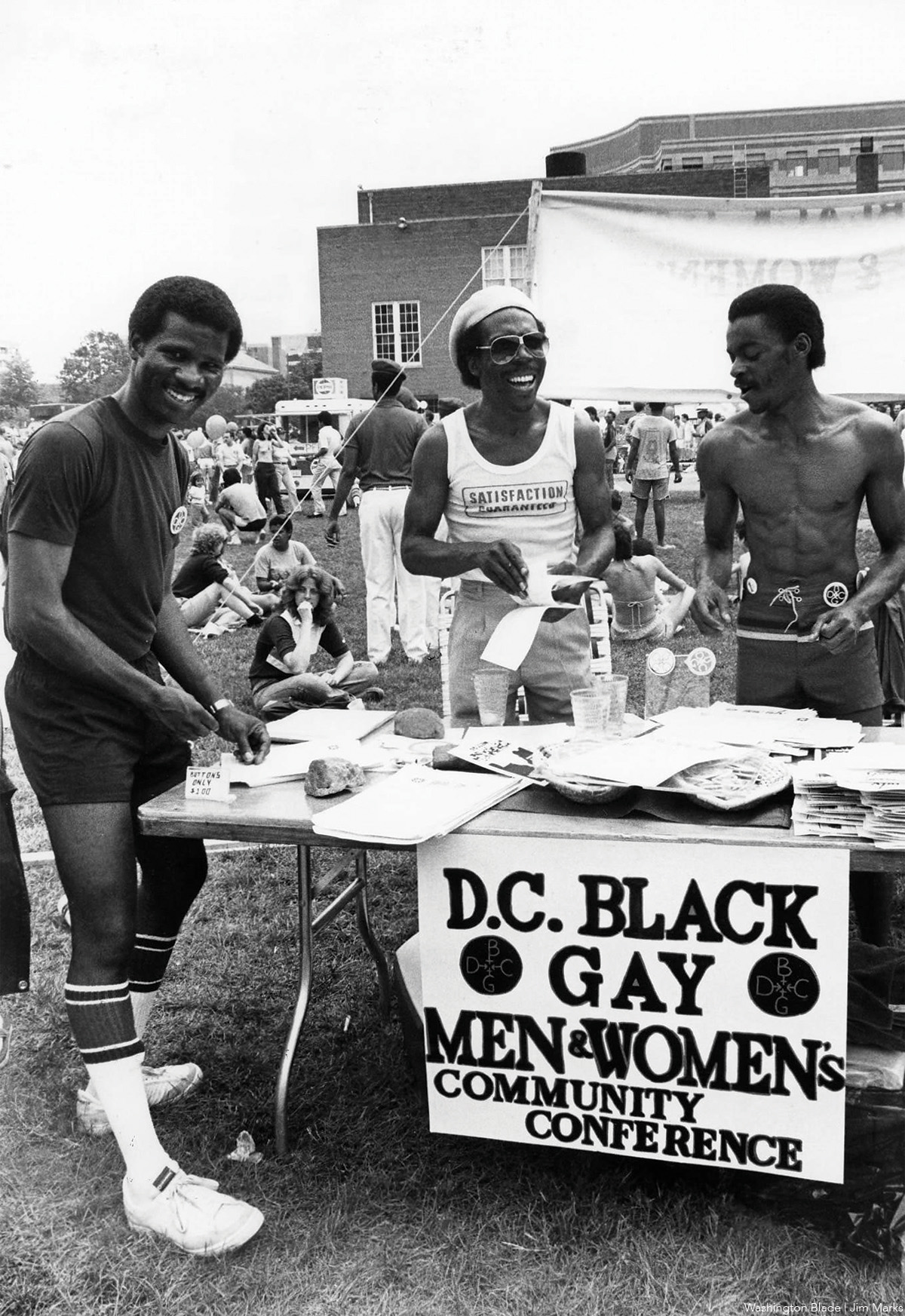
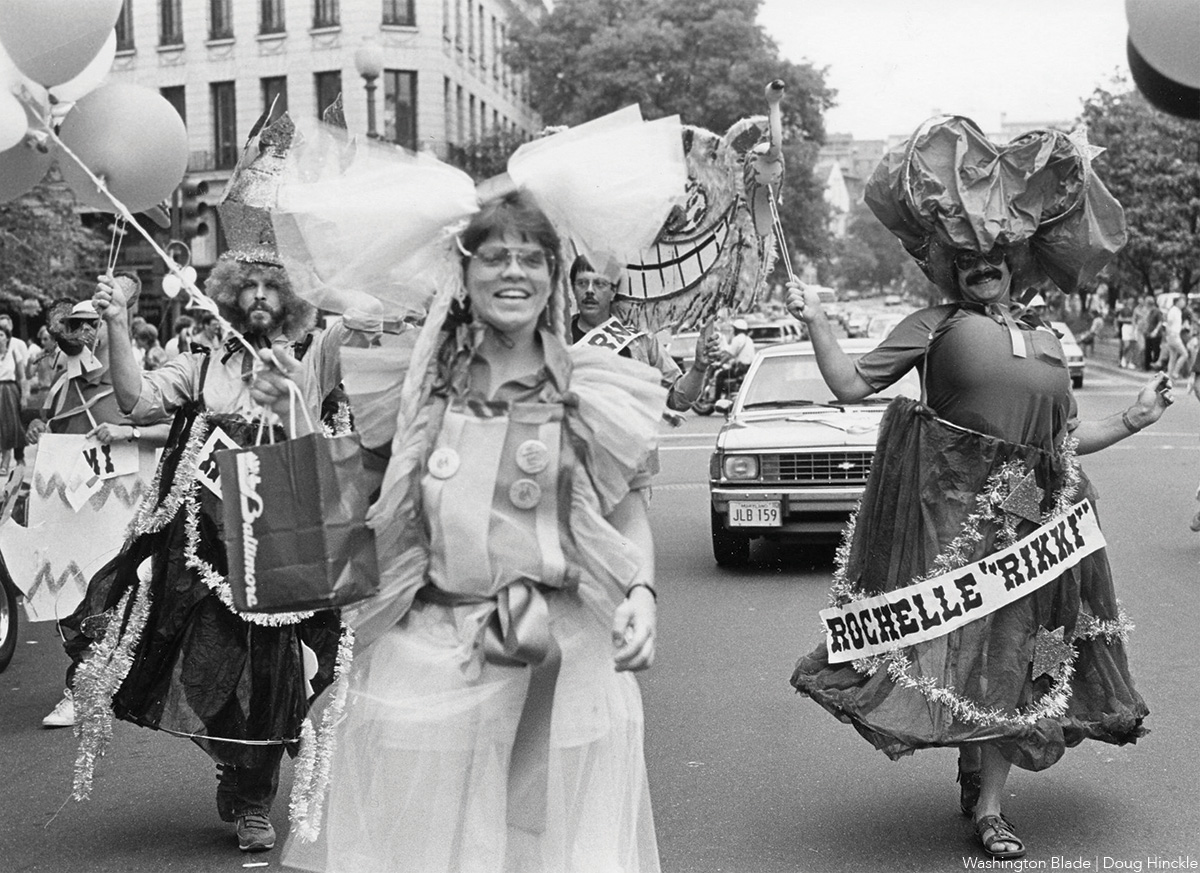

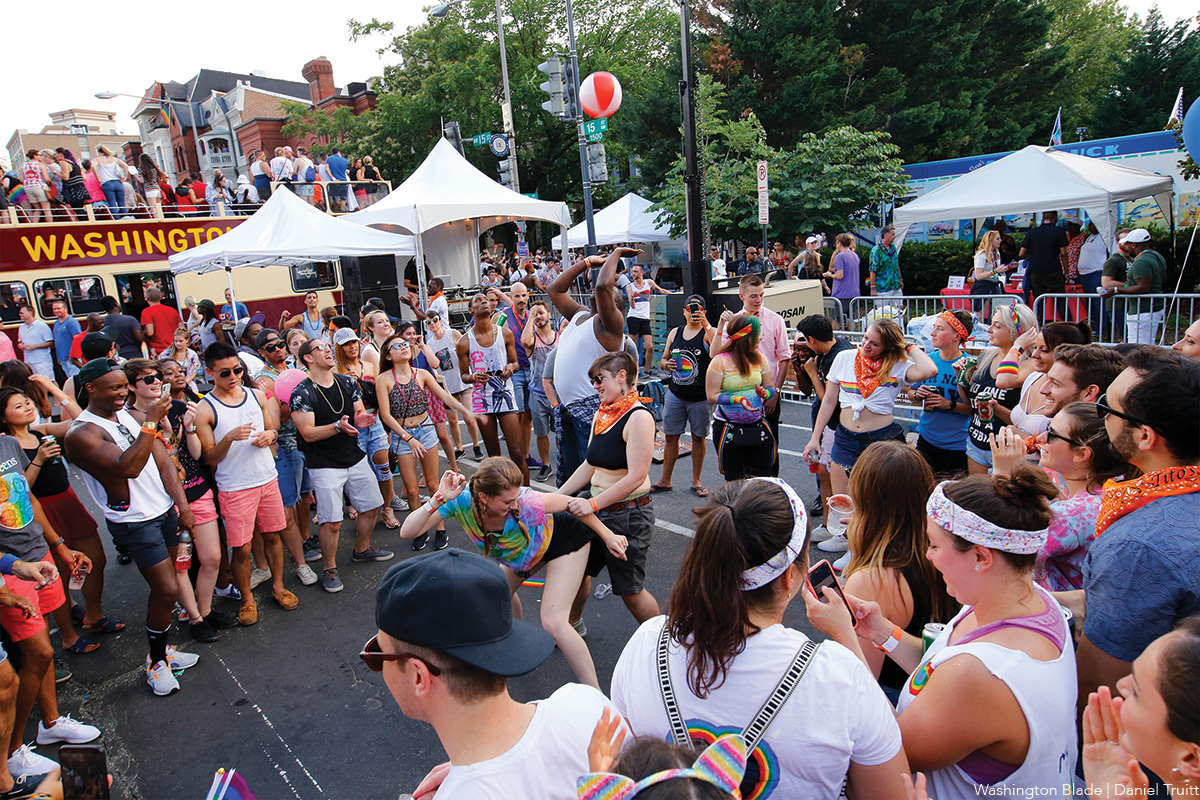
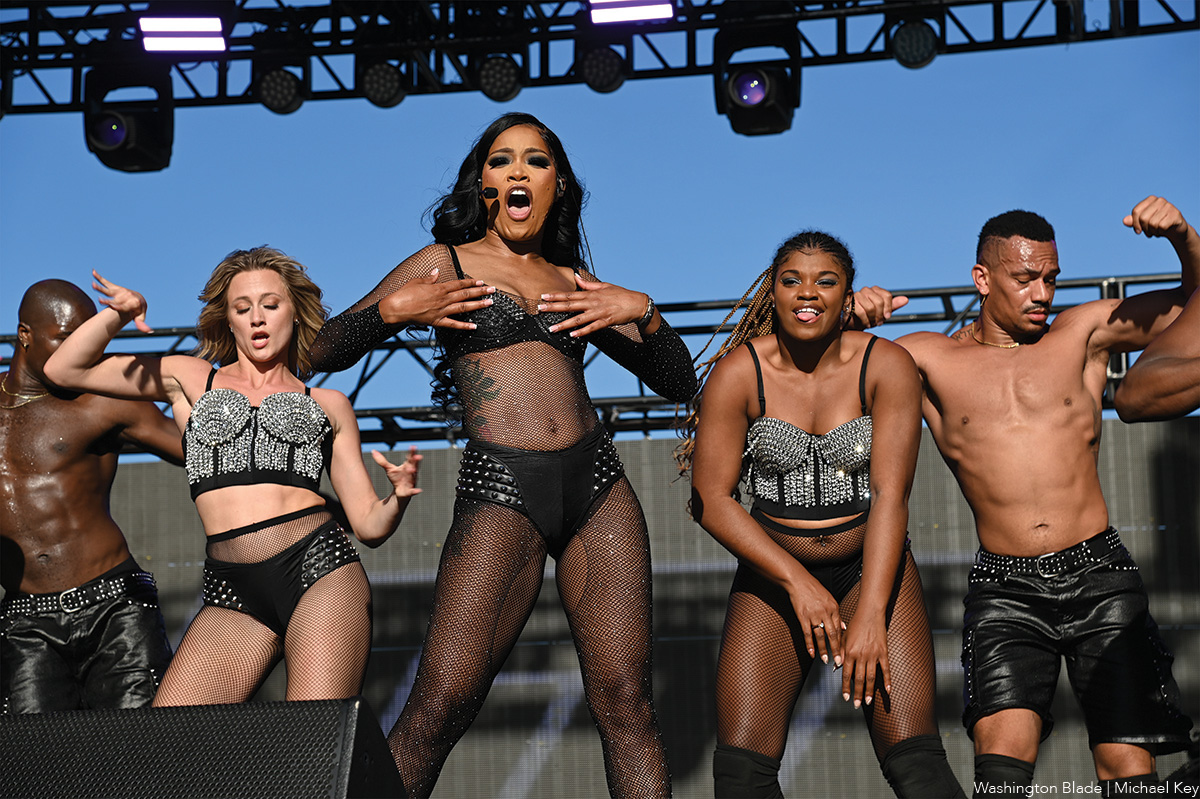
-

 U.S. Supreme Court5 days ago
U.S. Supreme Court5 days agoSupreme Court upholds ACA rule that makes PrEP, other preventative care free
-

 U.S. Supreme Court5 days ago
U.S. Supreme Court5 days agoSupreme Court rules parents must have option to opt children out of LGBTQ-specific lessons
-

 Television5 days ago
Television5 days ago‘White Lotus,’ ‘Severance,’ ‘Andor’ lead Dorian TV Awards noms
-

 Music & Concerts5 days ago
Music & Concerts5 days agoBerkshire Choral to commemorate Matthew Shepard’s life



